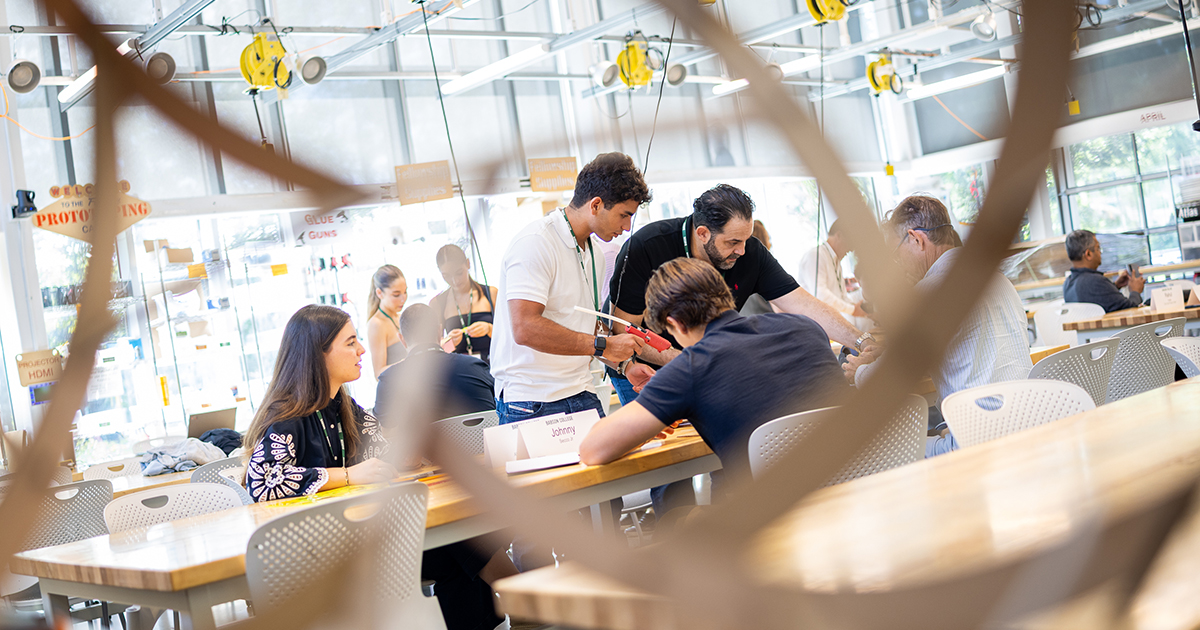6 Questions About Scale Up Economic Development

I am frequently asked, “Shouldn’t you foster both scale ups and startups?” In theory, yes, of course. But, in practice, economic development specialists and those acting for regional and public sector development have very scarce resources, and must allocate them wisely. I believe there is growing evidence (and logic) that investing resources in ventures’ scaling up, if done smartly, can have more short-term and long-term social-economic impact than any other regional economic development strategy, whether it is business creation, business attraction, or business retention.
Register for Driving Economic Growth Through Scale Up Ecosystems, March 30-April 1, 2020, at Babson Executive Education.
What Does Scaling Up Mean?
At the firm level, a simple way of thinking about scaling up is to profitably increase the rate of growth of sales revenues. If the current rate of growth is zero, then getting to 5% is scaling up. If it is 5%, then getting to 10% is scaling up. If growth already is at a high rate, then maintaining that rate is scaling up. There is no particularly meaningful 20% threshold—20% growth over three years is a convention that was established for research and measurement, but even its architects understand that it skews results to over-represent smaller firms among scale ups.
In terms of social-economic impact, it doesn’t matter if the venture is old or young, first generation or third, innovative or copycat, or has raised equity capital or bootstrapped. What matters is that the venture enters into a relatively rapid growth trajectory.
Can Regions Scale Up?
When referring to regional development, scaling up means more local ventures scaling up. Put simply, more and more local firms must grow more and more rapidly. Consistent with the best research, it is better socio-economically when firm-level scale up is spread across a broad base of firms. All else being equal, 10 ventures growing to 100 (in headcount, for example) is better for a local economy than one local venture growing to 1,000, especially since some of the 10 will naturally continue growing toward 1,000.
Don’t More Startups Lead To More Scale Ups?
Again, in theory, yes, but in practice, not really. The historical records of entrepreneurship in Israel, India, Boulder, Boston, and Silicon Valley suggest that large companies were essential early elements in the later emergence of entrepreneurship ecosystems. Boulder benefited from IBM and NORAD, among others; in Israel, Tadiran and Israel Aircraft; in Boston, it was Raytheon, Mitre, and Lincoln Labs. In India, IBM’s exit in 1977 was catalytic in the formation of the BPOs that emerged shortly thereafter.
Aren’t Startups the Big Job Creators?
Statements about startups and job creation have contributed to confusion because they unintentionally conflate several more specific questions:
- Are a lot of new jobs found in newly registered companies? If measured by census data, the answer is likely yes.
- Do newly registered firms create good jobs? Here, the answer is not so much.
Research suggests that most of those startup jobs are low-level service jobs, contrary to conventional wisdom. Moreover, many of these jobs disappear soon after they are created. - Will encouraging startups lead to job creation? Here, the answer is almost certainly not. As
Scott Shane writes, “We have no evidence that firm formation causes economic growth.”
Is Scale Up Anti-Startup?
Absolutely not. From a purely personal perspective, I have made more than 50 investments in over 20 startups in Europe, the U.S., Israel, China, and Africa, and I believe that startups are an essential element in any well-functioning regional economy. However, the mantra that startups create jobs has unwittingly misled policymakers. Good jobs are created when firms grow, not when they start.
For economic development purposes, think of startups as by-products of local scale ups. Once local ventures start accelerating their growth, it systematically translates into good role models, mentors, and business partners for startup entrepreneurs. Most importantly, scale up entrepreneurs offer a growth template to startup entrepreneurs. In Manizales-Mas, for example, we launched two startup programs, AddVenture-Mas and Startup-Mas, but only after we had helped a critical mass of post-revenue companies scale up.
How Can We Scale Up Our Region?
Fortunately, scale up outcomes can relatively easily be fed back to benefit a broad range of stakeholders, both naturally and with a little help. When your entire region is scaling up, for example, local banks benefit from better loan books, public sector actors gain popularity from more jobs and generate taxes for public investment, and incumbent corporations have better access to talent and local supply chains.
Entrepreneurs and their investors also benefit. Because growth is largely its own reward, hard incentives like tax breaks, angel credits, and small business loan guarantees are both expensive and unnecessary. In fact, these often lead to perverse outcomes. Soft incentives such as convening, celebrating, communicating, and training are more important. Using our experiences in Manizales, Colombia, Milwaukee, Wisconsin, North East Ohio, and other regions, we find it useful to think about intervening at four levels:
- Quickly demonstrating new growth by entrepreneurs
- Broadly communicating that new growth to the region
- Engaging nonentrepreneur stakeholders to invest various resources in growth
- Building the governance, execution, and professional capacities to sustain Scale Up
Let’s not be confused: Scale Up is only a simple metaphor. But, it is a metaphor that evokes growth. By doing so, it makes growth the centerpiece of the entrepreneurship dialogue. Without growth, there is no real entrepreneurship. A growing body of research and practice on how to foster Scale Up ecosystems is attracting increasing amounts of attention and action. Today, there are more than two dozen Scale Up projects in Denmark, Colombia, Switzerland, Russia, Norway, Brazil, England, Scotland, Panama, and the United States. As these projects and others like them take shape, they are reinvigorating communities and societies around the world.
Posted in Insights



